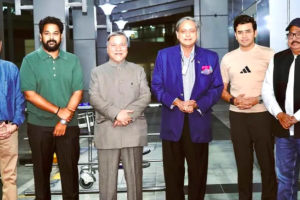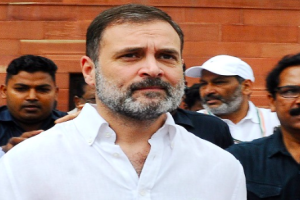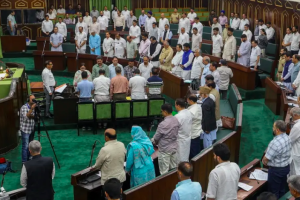How is the ink applied on fingers before voting? How does an EVM look like? What is the atmosphere inside polling stations? These were the queries by teenagers and children who tagged along with their parents and grandparents in their visit to polling booths on voting day in the national capital.
While many flocked the photo booths at some polling stations and joined their parents in selfies, many others wanted to see the voting process.
“My eight-year-old son is very curious about the election process. I had even taken him to visit the poll museum at Chief Electoral Office a few months ago, but he was excited to see it live today,” said Reema Bajaj, a private school teacher.
Four-year-old twin brothers, Ridhan and Vidhan, accompanied their grandparents to a model polling booth in West Delhi”s Kirti Nagar.
“They are too young to understand the significance of voting but at least they will know it by the time they are eligible to vote that they should not miss. Today, for them it”s a new experience to look around,” said Ramesh Gulati, a businessman.
The polling booths, decked up with balloons and banners of “festival of democracy”, were a centre of attraction for the children.
A polling booth in St Columbus school in New Delhi had a creche facility for kids where parents could leave them as they went to cast their vote inside the booth.
While children were keen to know about the functioning of the Electronic Voting Machines (EVMs), parents said they wanted them to understand the nuances of the electoral system and get a feel of how the democratic process functions.
“I wanted to see the functioning of the Electronic Voting Machines (EVMs) to help me understand the nuances of the electoral system and get a feel of how the democratic process functions,” said 13-year-old Shivam Tyagi at Hari Nagar polling booth.
A few of the model polling stations also had separate kids” zones to entertain the kids as their parents went inside to cast their vote.
Over 1.47 crore people are eligible to exercise their franchise in the polls that will decide the fate of 672 candidates in 70 assembly constituencies, which are seeing a triangular contest among the ruling Aam Aadmi Party (AAP), the opposition BJP and the Congress. The votes will be counted on February 11.
























